AFL Franchises

AFL Franchises
Dallas Texans
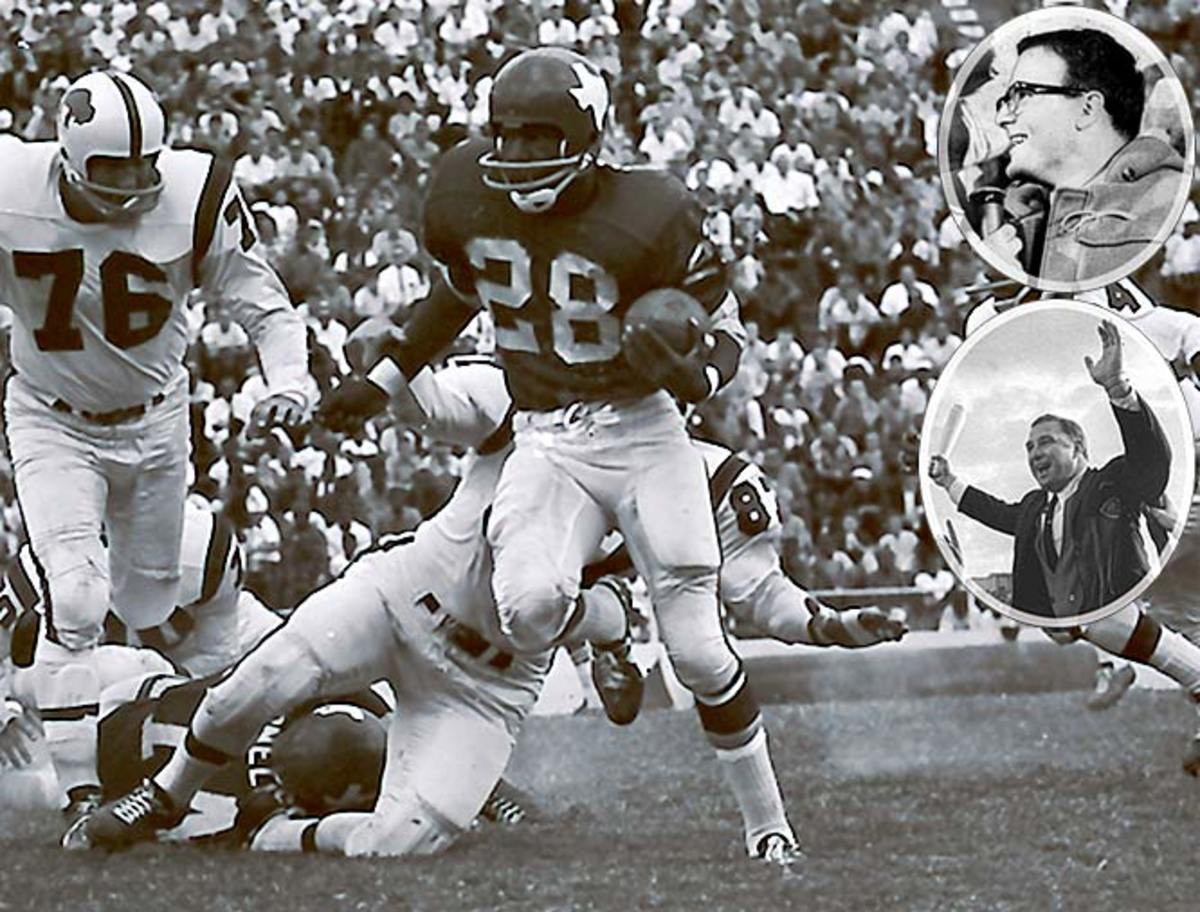
Lamar Hunt (inset top) was denied an NFL expansion team so, with Oilers founder Bud Adams, led the charge to create the AFL. Hunt's Dallas Texans had to compete for fans with the Cowboys, a 1960 NFL expansion team. So he moved the 1962 AFL champions to Kansas City in 1963 and renamed them the Chiefs. Hank Stram's (inset bottom) star-studded team -- he coached six Hall of Famers -- was the AFL's representative in Super Bowl I and beat the mighty Vikings in Super Bowl IV, the last game played between the AFL and the league that spurned Hunt a decade earlier. The AFC championship trophy bears Hunt's name.
New York Titans

The original N.Y. Titans -- a moniker that battled the NFL's Giants for Gotham-sized grandiosity -- became the Jets in 1963. No matter what you call them, mediocrity and disappointment have defined the Jets since Day 1 -- save for a miraculous afternoon in Miami in January 1969, when the Jets shocked the NFL's mighty Colts in Super Bowl III. Not only did Joe Namath & Co. lift the AFL to legitimacy that day, but also they conquered one of the greatest teams in NFL history. The 1968 Colts were the most statistically dominant team of the Super Bowl Era until being surpassed by another non-champ shocked by a New York underdog: the 2007 Patriots.
Houston Oilers

The Oilers -- founded by oil tycoon Bud Adams (inset) -- won the AFL's first two titles and were largely responsible for the league's reputation for high-flying offensive football: The 1961 Oilers were the first team in pro football history to score more than 500 points in a season (513). Credit legendary quarterback George Blanda (pictured) and 1959 Heisman Trophy winner Billy Cannon, the first big-name college star to choose the upstart AFL over the established NFL. The organization moved to Tennessee before the 1997 season and changed its name to Titans in 1999.
Oakland Raiders
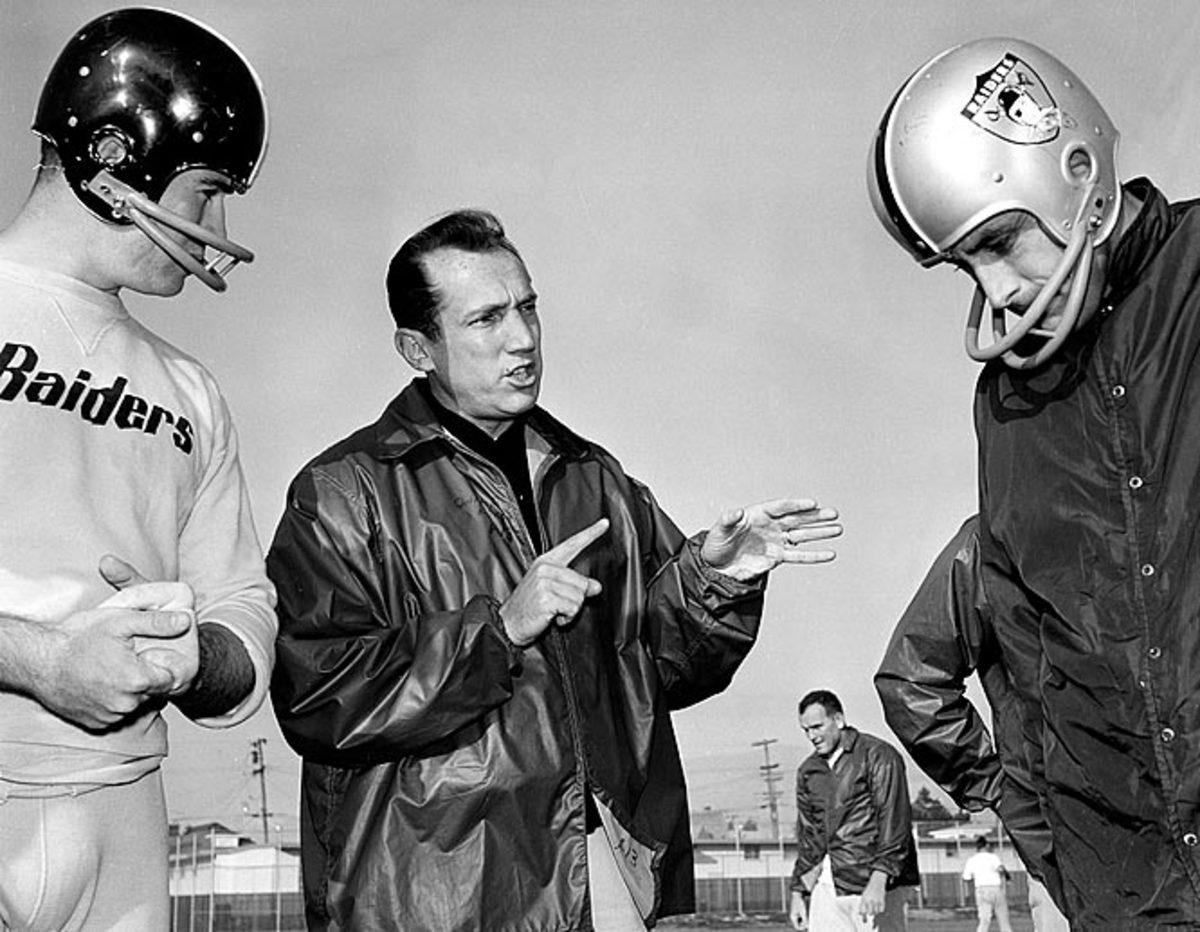
The Raiders struggled from 1960 to 1962. Then coach Al Davis arrived on the scene and inspired one of the great turnarounds in sports history -- from 1-13 in 1962 to 10-4 under Davis in 1963. The organization never looked back: the Raiders posted winning records every year from 1965 to 1985 and appeared in a remarkable 14 of 36 AFL/AFC championship games from 1967 to 2002. The 13-1 Raiders of 1967, who lost to the Packers in Super Bowl II, were the single most dominant team of the AFL. Oakland has also sent more members to the Hall of Fame than any other AFL club.
Cincinnati Bengals
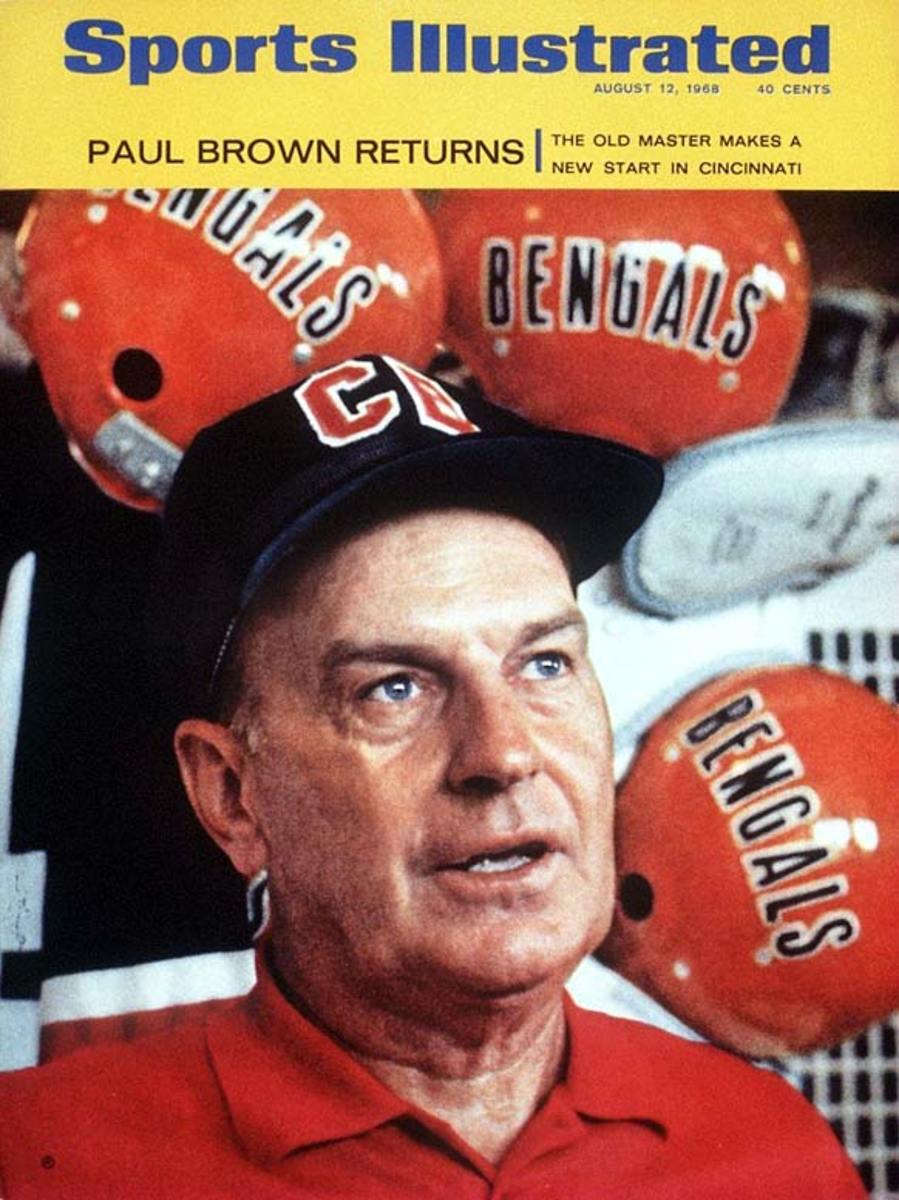
Coaching legend Paul Brown was gracelessly dumped by Cleveland Browns owner Art Modell in 1963. He re-emerged in 1968 across the state, in a rival league, and with a team, not so coincidentally, that sported the same initials (CB) and same color scheme (brown and browner) he left back in Cleveland. The Bengals were the 10th and final franchise to join the AFL. Brown, who died in 1991, got the last laugh over the organization that bears his name: The Bengals have won two conference titles in the Super Bowl Era. The Browns have won zero.
Denver Broncos
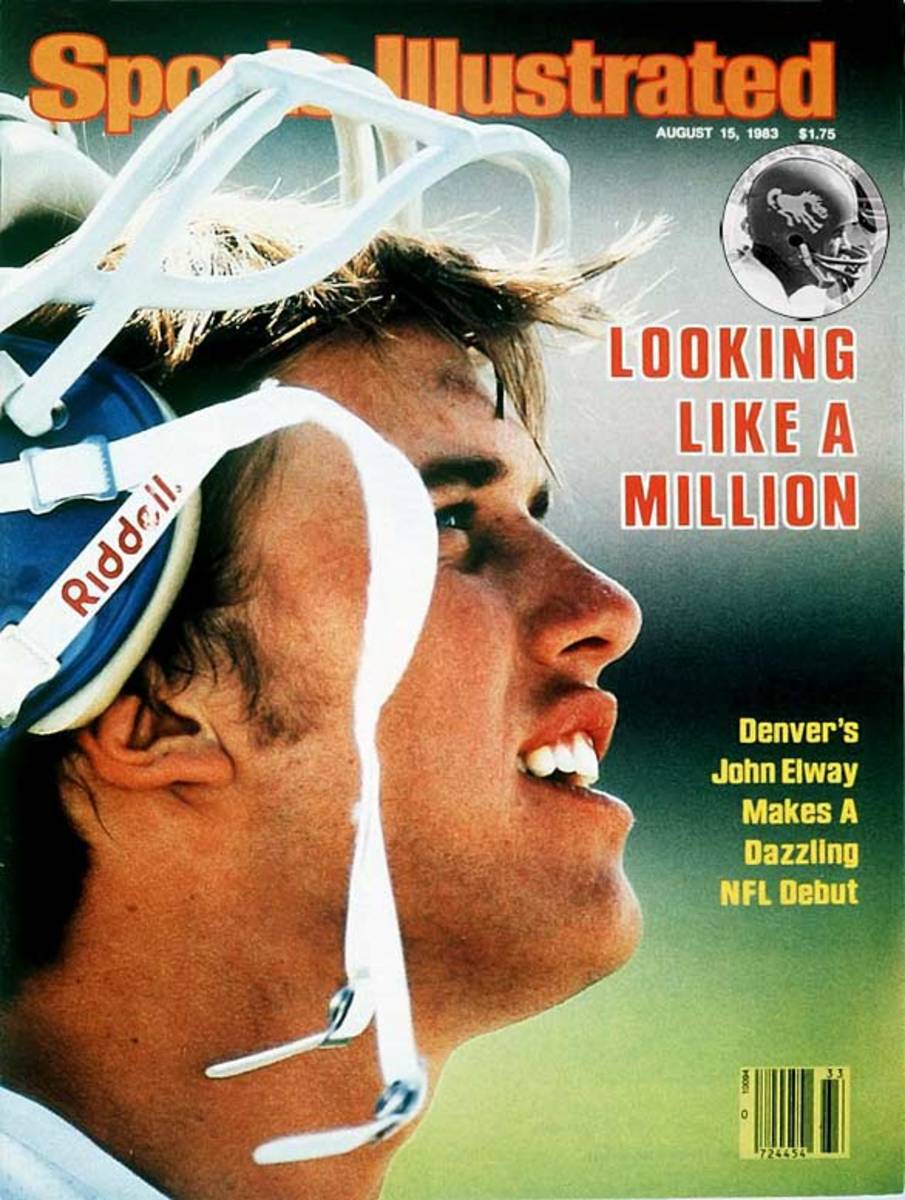
The Broncos were the orange-headed stepchild of the second-rate AFL. Despite a colorful history -- which included a ghastly brown-and-yellow ensemble they wore in 1960 and will don again in 2009 -- Denver did not enjoy a single winning season during their AFL days. Even Lou Saban, the eminently quotable coach of NFL Films fame, could do little for the organization. He won back-to-back league titles with the Bills in 1964 and 1965, but crashed and burned with the Broncos. Denver enjoyed just two postseason victories (both in 1977) before the arrival of a guy named John Elway in 1983. They've appeared in six Super Bowls, tied with the Patriots for the most by an AFL team, winning two.
Miami Dolphins
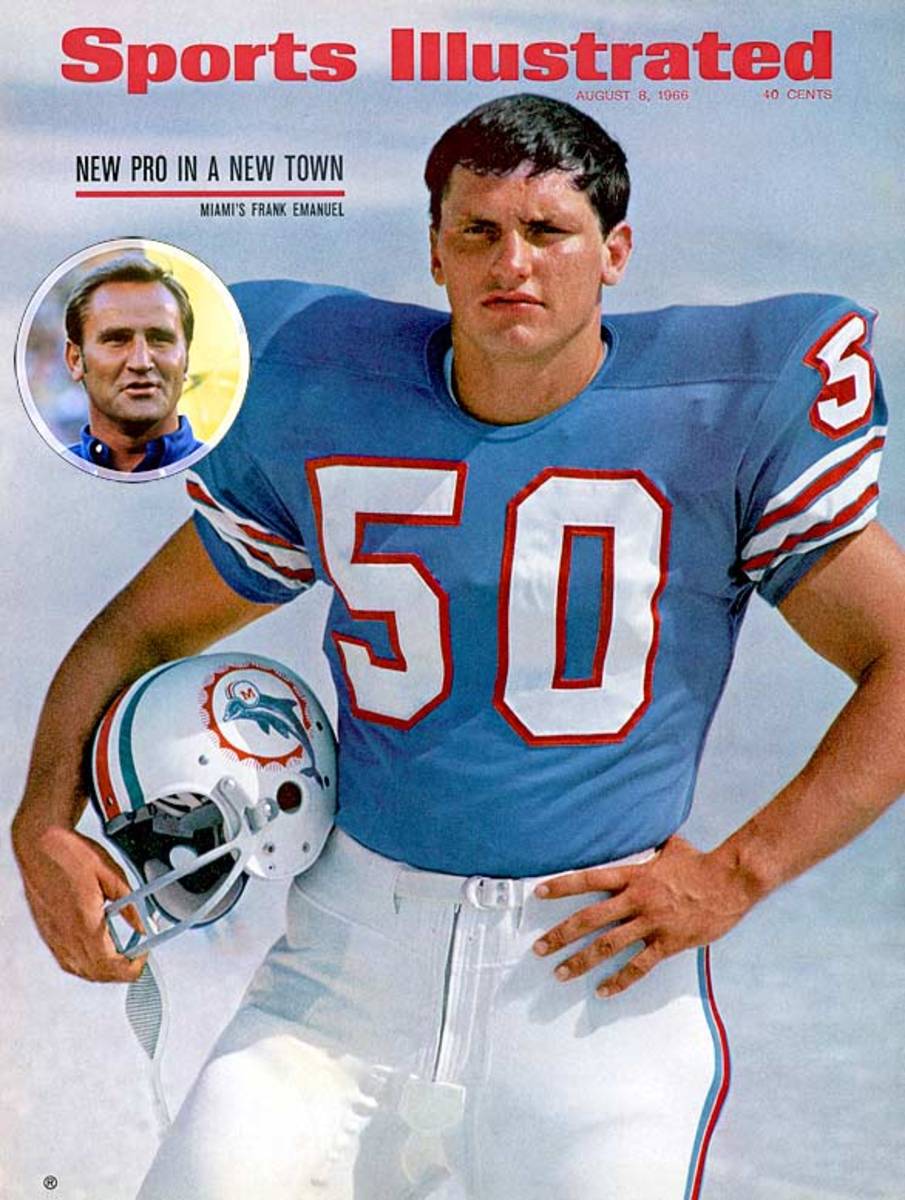
The Dolphins were the AFL's first expansion franchise in 1966. After four terrible seasons, Miami made two of the boldest moves in pro football history in the wake of the 1970 AFL-NFL merger. First, it stole Don Shula (inset) from the NFL's Colts. Second, it turned aquamarine into the pigskin power color of the early 1970s. Shula instantly forged the Dolphins into winners, led the franchise to an appearance in Super Bowl VI, victory in Super Bowls VII and VIII and, in 1972, orchestrated the NFL's first and only undefeated season since Curly Lambeau's 1929 Packers.
Boston Patriots
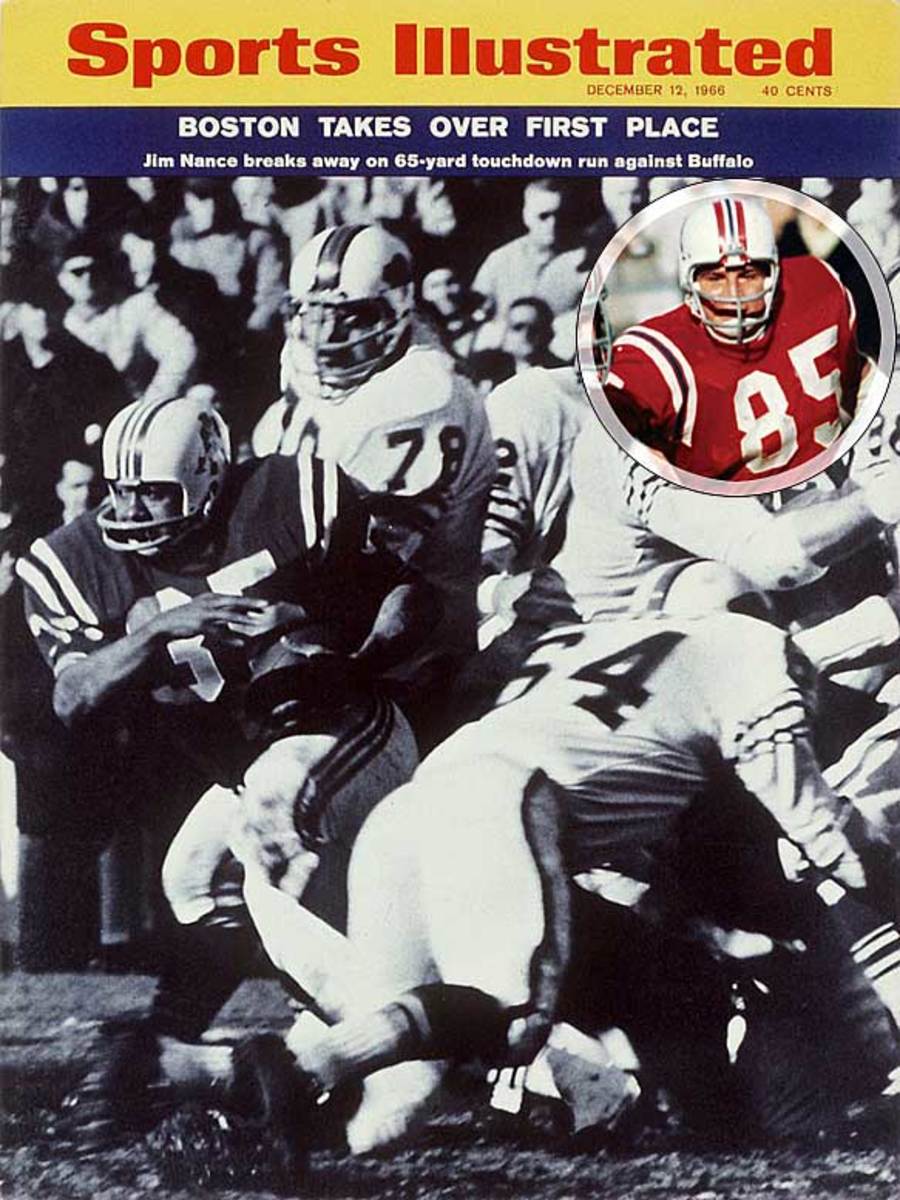
The itinerant Boston Patriots played in four homes (Nickerson Field, Harvard Stadium, Fenway Park and BC's Alumni Stadium) prior to the AFL-NFL merger in 1970. Behind future Hall of Fame linebacker Nick Buoniconti (inset), the Patriots went to the 1963 AFL Championship game. They became the New England Patriots in '71, when their permanent home was built in Foxboro, Mass. The organization was among the most consistent losers in the NFL until Tom Brady stepped on the field in 2001. The Patriots have now appeared in six Super Bowls, tied with Denver for the most by an AFL team, and won three, tied with Oakland for the most by an AFL team.
Los Angeles Chargers

The Chargers, who moved to San Diego after just one season in L.A., appeared in five of the league's first six championship games under the leadership of Hall of Fame coach and innovator Sid Gillman (left). However, they lost four of those five games and history has not been kind to them since: the Chargers have appeared in just one Super Bowl, losing badly to the 49ers in Super Bowl XXIX. Great offensive teams that consistently fall short in the playoffs has been San Diego's hallmark from the days of Gillman in the 1960s, to Dan Fouts in the 1980s, to LaDainian Tomlinson today.
Buffalo Bills
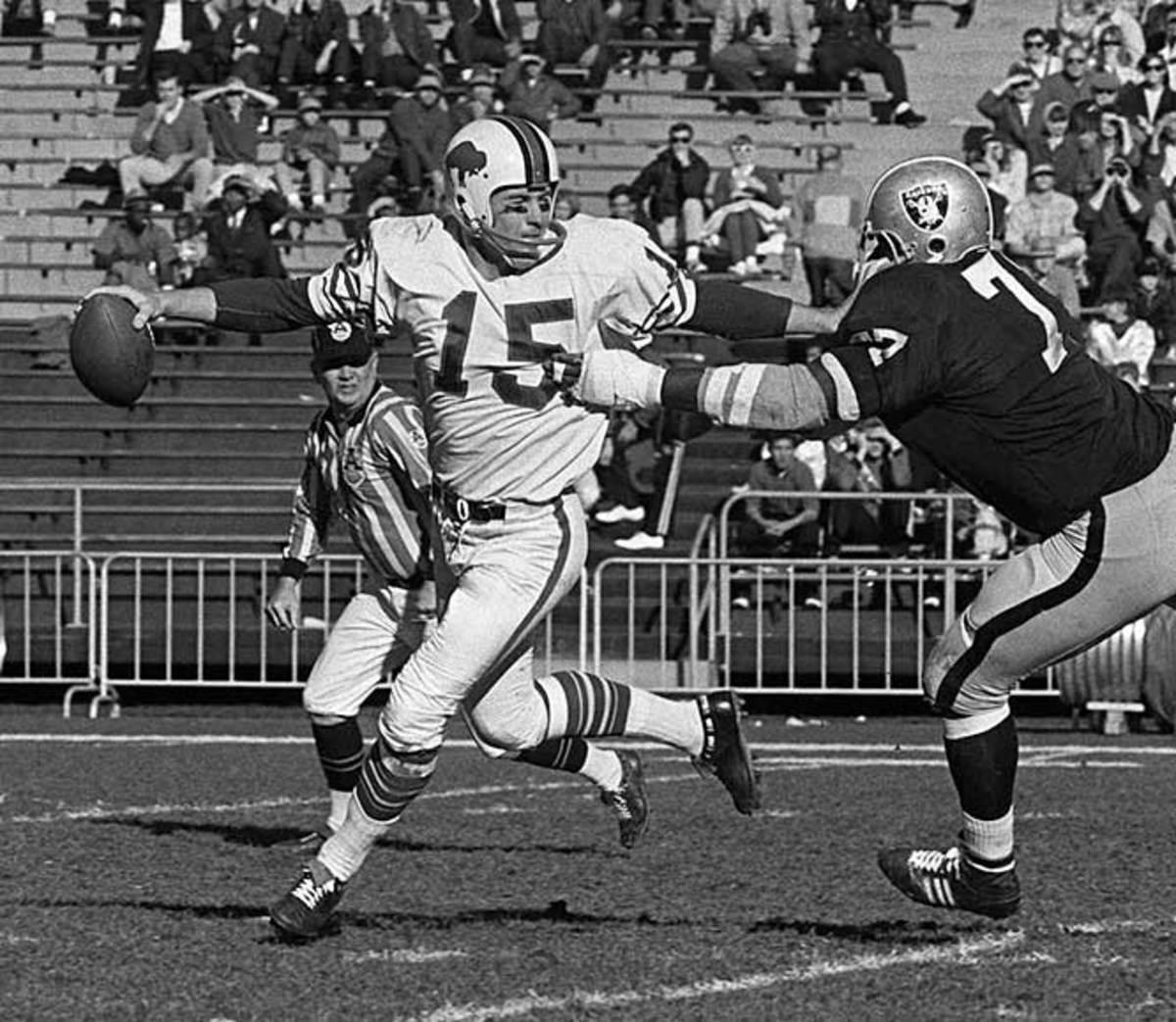
The Bills struggled with mediocrity in the first two AFL seasons, but their fortunes took a sharp turn for the better in 1962, with the arrival of coach Lou Saban, quarterback (and future presidential candidate) Jack Kemp (pictured) and 250-pound power-back Cookie Gilchrist. The trio led the Bills to a playoff game in 1963 and AFL championships in 1964 and 1965. But Buffalo lost to the Chiefs in the 1966 AFL title game, while playing for the right to represent the league in the first Super Bowl. Disappointment has defined the franchise since that loss.
